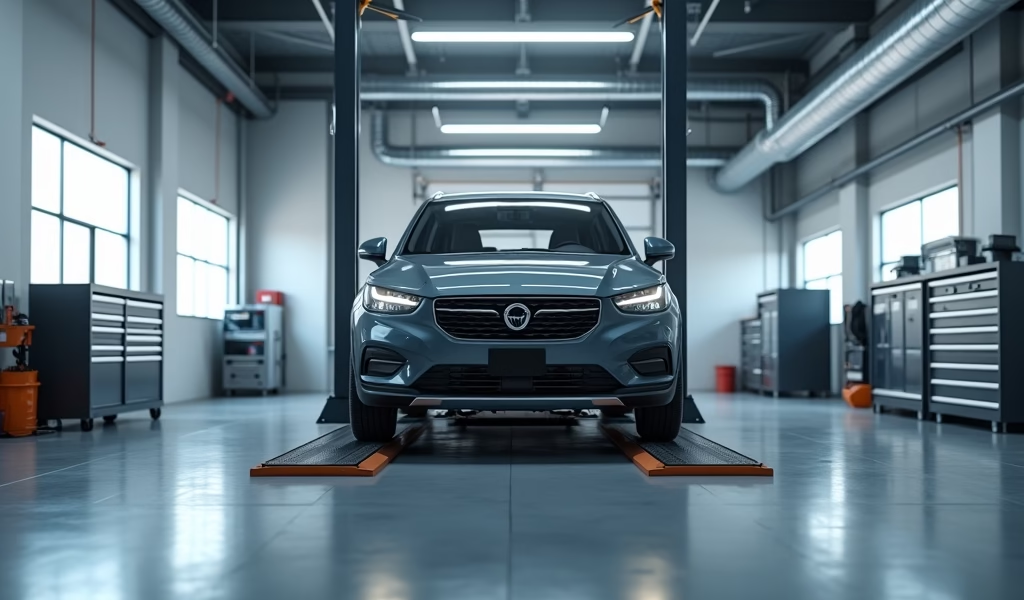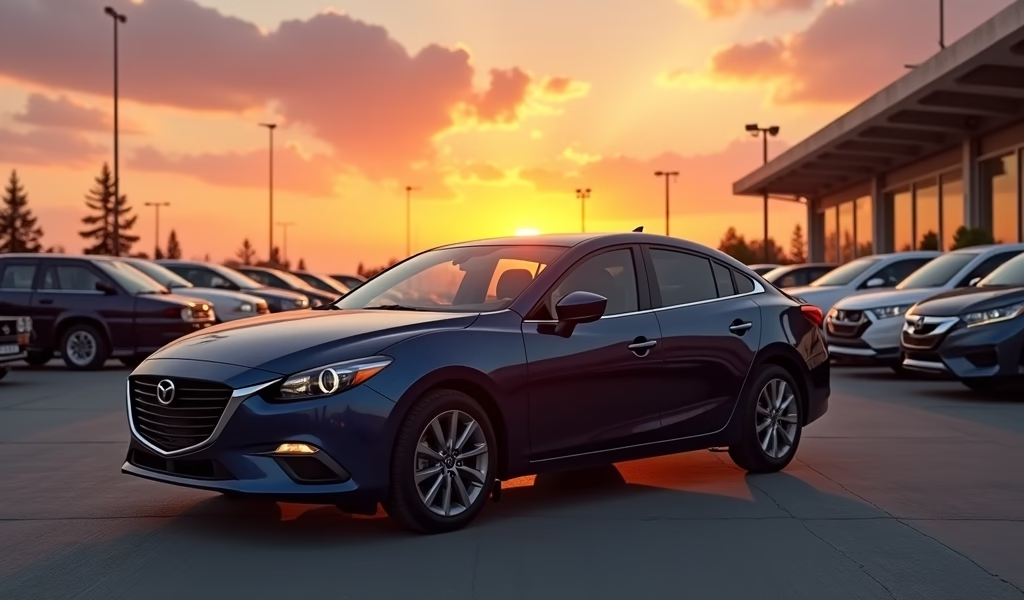Overview
The article provides five strategic approaches for finding affordable vehicles: using online marketplaces for comparison shopping, exploring government auctions for below-market values, considering certified pre-owned programs for reliability guarantees, timing purchases around dealership sales cycles, and buying from private sellers to eliminate middleman costs. Beyond purchase price, true affordability factors in total ownership costs including fuel efficiency, insurance, maintenance, and potential repairs.
Table of Contents
- Understanding What Makes a Car “Affordable”
- Online Marketplaces: Virtual Car Lots at Your Fingertips
- Government and Public Auctions: Hidden Gems at Bargain Prices
- Certified Pre-Owned Programs: Peace of Mind for Budget Shoppers
- Timing Your Purchase: When Dealers Are Most Motivated
- Private Sellers: Cutting Out the Middleman
- Conclusion
- Frequently Asked Questions
Finding affordable wheels in today’s market can feel like searching for a needle in a haystack. With the average new car price hovering around $48,000 and used car values still inflated compared to pre-pandemic levels, budget-conscious shoppers need every advantage they can get. As someone who’s spent over two decades under the hood and guiding customers through the car-buying process, I’ve seen firsthand what works – and what doesn’t – when hunting for cheap cars that won’t leave you stranded.
The good news? Great deals still exist if you know where to look and how to shop smart. Whether you’re a first-time buyer or someone looking to minimize transportation costs, these five pro tips will help you navigate the sometimes murky waters of affordable vehicle shopping. Let’s dive into strategies that have helped thousands of my customers drive home happy without emptying their bank accounts.
Understanding What Makes a Car “Affordable”
Before we jump into where to find deals, let’s get clear on what “cheap” really means in the context of car buying. A truly affordable vehicle isn’t just about the number on the window sticker – it’s about the total cost of ownership. I’ve seen too many folks celebrate a $3,000 purchase only to spend another $4,000 in repairs within the first year.
True affordability includes factors like fuel efficiency, insurance costs, maintenance requirements, and potential repairs. Think of a car purchase like an iceberg – the selling price is just the visible tip, while the ongoing costs lurk beneath the surface. A Honda Civic priced $2,000 higher than a similar-age domestic sedan might actually save you money over three years of ownership due to better reliability and fuel economy.
When setting your budget, consider both the purchase price and at least the first year of ownership costs. Consumer Reports’ cost of ownership calculator can help you estimate these expenses before falling in love with a potential money pit. Remember: the cheapest car to buy isn’t always the cheapest car to own.
Online Marketplaces: Virtual Car Lots at Your Fingertips

The digital revolution has transformed how we shop for reliable budget cars. Online marketplaces have essentially created a 24/7 nationwide car lot you can browse in your pajamas. Sites like Carvana, AutoTrader, Cars.com, and even Facebook Marketplace offer powerful filtering tools to zero in on exactly what fits your budget and needs.
What makes these platforms particularly valuable for finding cheap cars is the ability to compare similar models across different sellers instantly. I recently helped a customer who found two nearly identical Toyota Corollas with similar mileage but a $3,200 price difference between sellers just 40 miles apart. Without online comparison, this price disparity would have remained hidden.
When using online marketplaces, expand your search radius if possible. Sometimes driving an hour to a neighboring city can save you thousands on the exact same model. Finding the best place to buy a used car often means looking beyond your immediate area, especially if you live in a high-cost region.
Pro tip: Use these platforms’ “save search” feature and set up alerts for specific models in your price range. Often the best deals are snapped up quickly, and being among the first to contact a seller can make all the difference in securing used car deals.
Government and Public Auctions: Hidden Gems at Bargain Prices
If you’re comfortable with a bit more risk for potentially massive rewards, government and public auctions can be goldmines for affordable vehicles. These auctions sell former fleet vehicles, seized assets, and repossessions – often at 30-60% below retail value. I’ve seen nearly-new police interceptor vehicles with maintenance records sell for less than half their blue book value.
To find these opportunities, check websites like GSA Auctions, GovDeals.com, and announcements from local police departments and municipalities. Many counties also hold regular public auctions that aren’t widely advertised but offer exceptional values. Your local newspaper’s legal notices section often lists upcoming government auctions.
The auction approach does require homework and discipline. Here’s my advice from years of guiding customers through successful auction purchases:
- Research models thoroughly before bidding
- Set a maximum bid and stick to it, no matter how exciting the action gets
- Arrive early to inspect vehicles if allowed
- Budget for immediate post-purchase inspections and potential repairs
- Check if financing is available (many auctions require cash or immediate payment)
Car auctions aren’t for everyone, but for those willing to embrace the process, they represent one of the absolute best places to buy cheap cars with excellent value potential. Just remember that most auction vehicles are sold as-is with limited or no warranty protection.
Certified Pre-Owned Programs: Peace of Mind for Budget Shoppers
For those seeking a middle ground between rock-bottom prices and reliability guarantees, Certified Pre-Owned (CPO) programs offer compelling value. These manufacturer-backed vehicles undergo rigorous inspections (typically 100+ points), come with extended warranties, and often include perks like roadside assistance and free maintenance visits.
While CPO vehicles command a premium over traditional used cars (typically $1,000-$2,500), they eliminate much of the guesswork and risk. From my experience in the service bay, I’ve seen significantly fewer issues with CPO vehicles compared to standard used cars. Toyota, Honda, and Mazda consistently rank among the best manufacturers for CPO value, combining affordable entry prices with strong reliability records.
The sweet spot for CPO shopping is typically 2-3 year old vehicles coming off lease returns. These cars have weathered the steepest depreciation curve but retain most of their useful life and modern features. Dealer-certified used cars provide an excellent balance of affordability and peace of mind, especially for shoppers who lack mechanical knowledge or access to trusted inspection services.
When considering CPO options, be sure to read the fine print on what’s covered and for how long. Some programs are significantly more comprehensive than others. The best CPO warranties transfer the balance of the factory warranty plus additional coverage, potentially protecting you for years to come.
Timing Your Purchase: When Dealers Are Most Motivated
In my years working with both independent and franchise dealerships, I’ve seen firsthand how timing can impact what deals are available. Dealerships operate on monthly, quarterly, and annual sales targets that create predictable windows of opportunity for savvy buyers. As these deadlines approach, sales managers become increasingly flexible to move inventory.
End-of-month shopping, particularly the last 2-3 business days, often yields the best negotiating leverage. Sales representatives facing quota deadlines may accept deals they’d dismiss earlier in the month. This effect multiplies at the end of quarters (March, June, September, December) and reaches its peak during the final days of the calendar year.
Beyond these cyclical opportunities, model-year changeovers create excellent buying windows. When next year’s models begin arriving (typically August through October), dealerships become motivated to clear out current-year inventory. These “leftover” new models can sometimes be purchased for less than recent-model used cars, especially when manufacturer incentives are factored in.
Before visiting dealerships during these high-pressure periods, do your homework. Research current incentives, know the invoice price, and walk in with pre-approved financing. This preparation allows you to capitalize on dealers’ deadline pressure without making rushed decisions yourself.
Private Sellers: Cutting Out the Middleman

The direct-from-owner market often yields the absolute lowest prices on used vehicles. Without dealership overhead, reconditioning costs, and profit margins, private sellers can offer the same vehicle for thousands less than retail establishments. Platforms like Craigslist, Facebook Marketplace, and neighborhood bulletin boards connect you directly with sellers looking to move vehicles quickly.
In my experience, the best private party deals come from specific situations: relocating owners who can’t take their vehicle, families selling a deceased relative’s car, or people upgrading who need to sell quickly to fund their new purchase. These motivated sellers prioritize a fast, drama-free transaction over maximizing profit.
However, private party purchases require extra diligence. Always insist on these safety measures:
- Meet in public places (police station parking lots are ideal)
- Bring a friend to appointments
- Obtain a comprehensive vehicle history report
- Have the car inspected by a trusted mechanic before purchase
- Verify the seller’s identity matches the title
- Check for liens or other title issues
These precautions might seem excessive, but I’ve seen too many customers learn expensive lessons the hard way. The $150 pre-purchase inspection fee is insignificant compared to the thousands you might spend fixing hidden problems. Researching where to buy a car should always include understanding the risks and benefits of each purchase channel.
When inspecting private sale vehicles, pay special attention to maintenance records. A folder full of service receipts often indicates a conscientious owner who took proper care of the vehicle. This documentation can be more valuable than a slightly lower mileage figure or newer model year.
Conclusion
Finding affordable vehicles requires strategy, patience, and knowledge – but the financial rewards make the effort worthwhile. By combining these approaches and understanding when each makes the most sense for your situation, you’ll maximize your chances of driving home in a reliable budget car without buyer’s remorse.
Remember that the best deals often come to those who take a multi-pronged approach. Start your research online, keep an eye on upcoming auctions, time dealership visits strategically, and regularly check private listings. Patience truly pays when hunting for automotive bargains – the perfect combination of price, condition, and reliability rarely presents itself immediately.
While searching for cheap cars can sometimes feel overwhelming, these five proven strategies will help you navigate the market with confidence. Whether you’re a college student buying your first vehicle or a family looking to reduce transportation costs, these approaches have helped thousands of my customers drive away happy without emptying their bank accounts.
What ultimately makes a car purchase “good” isn’t just the price tag – it’s finding the right vehicle for your needs at a fair price that fits your budget both upfront and long-term. With these pro tips and a methodical approach to your search, you’re now equipped to make that happen.
Frequently Asked Questions
What’s the absolute cheapest place to buy a reliable used car?
Private party sales typically offer the lowest prices, often 10-15% below dealer retail. Just ensure you get a pre-purchase inspection and vehicle history report to avoid costly surprises.
Are car auctions worth the risk for finding cheap vehicles?
Auctions can offer exceptional value (30-60% below retail) but come with higher risk due to limited inspection opportunities and as-is sales. They’re best for buyers with mechanical knowledge or budget for potential repairs.
When is the best time of year to find affordable vehicles at dealerships?
December (especially the week between Christmas and New Year’s) offers the best deals as dealers rush to meet annual, quarterly, and monthly targets simultaneously. End-of-month weekdays are consistently better than weekends year-round.
How much should I budget beyond the purchase price when buying a used car?
Budget 10-15% of the purchase price for immediate maintenance, new tires if needed, and registration fees. Additionally, establish a monthly maintenance fund of at least $100-150 for future repairs.
Are certified pre-owned cars worth the premium over regular used cars?
For most buyers without mechanical expertise, the CPO premium ($1,000-$2,500) is worth the comprehensive inspection, extended warranty, and peace of mind. The value is especially strong for vehicles 2-3 years old with remaining factory warranty.

